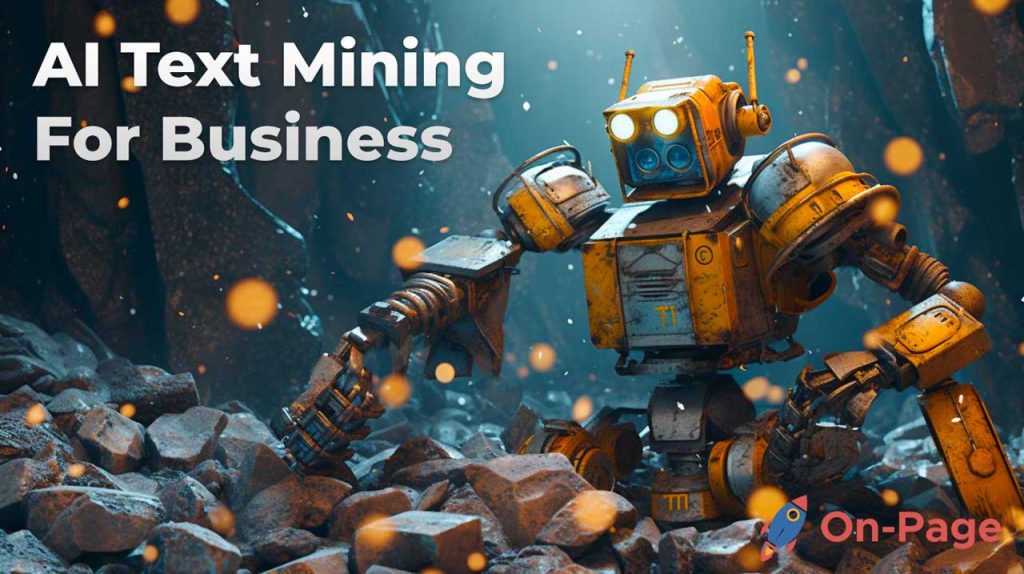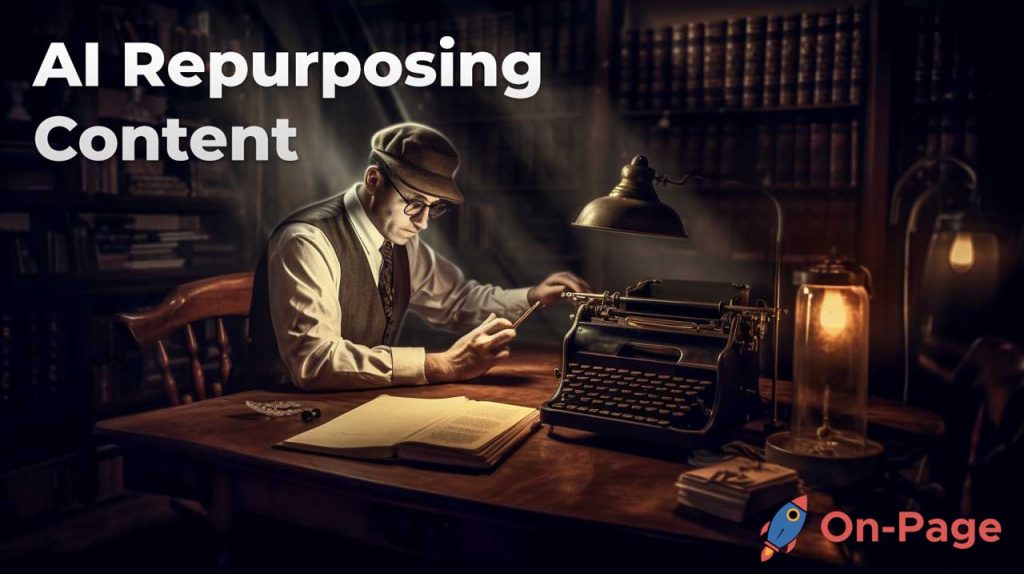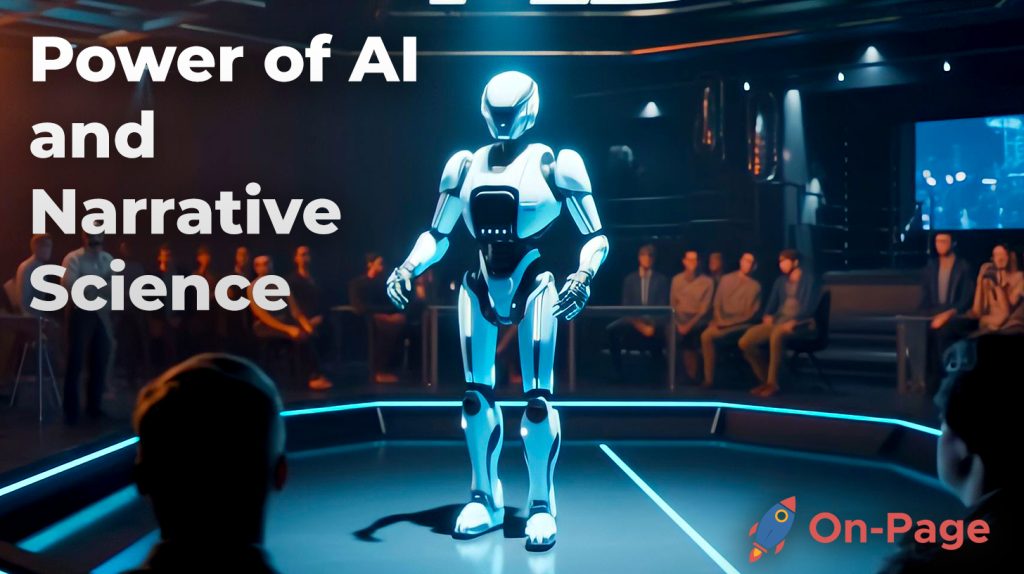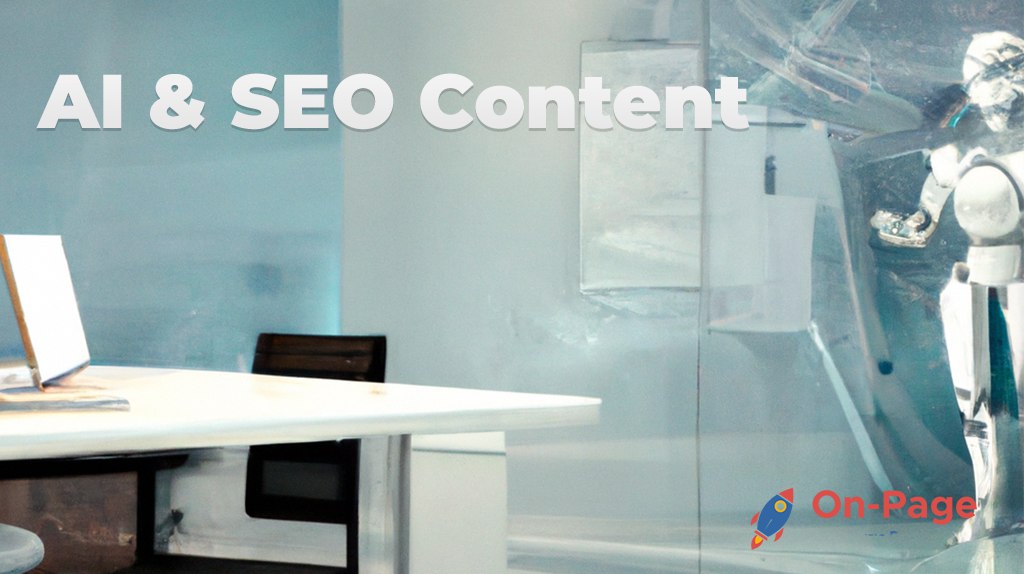Picture the Oscars in 2024: the red carpet rolls out, cameras flash, and among the crowd of celebrated screenwriters, a new luminary enters the scene—Artificial Intelligence. Gone are the days when crafting a compelling script relied solely on human ingenuity. AI screenwriting is here to revolutionize storytelling, opening up uncharted territories that surpass even the wildest cinematic dreams. But how exactly is it doing this? Hold onto your popcorn and immerse yourself with On-Page.ai as we delve into how AI is transforming the art of storytelling from conventional narratives to futuristic masterpieces.
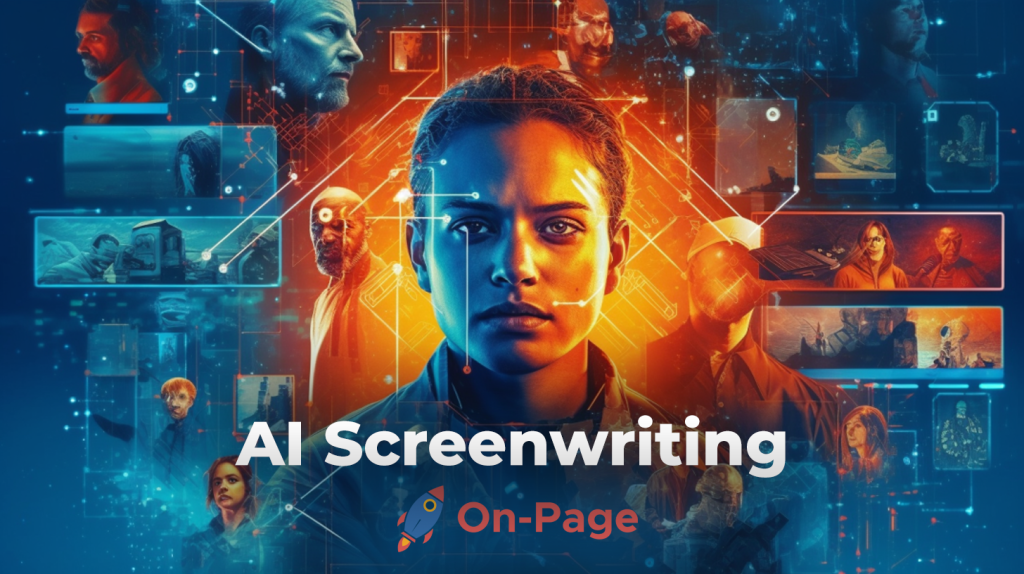
AI technology is transforming screenwriting by improving efficiency, providing valuable insights and suggestions to writers, and streamlining the creative process. Screenwriters can utilize AI-powered tools to assist with menial tasks like editing and refining screenplays, allowing them to focus on more creative aspects of their work. Additionally, AI-generated material can be provided to writers as a starting point for rewrites or polish without forfeiting writing credit or compensation. The use of AI in the entertainment industry presents new opportunities for the art of storytelling to evolve and improve while still maintaining the importance of human creativity.
AI Screenwriting Tools and Technology
The film industry has undergone a significant transformation in recent years with the advent of AI technologies. One area that has seen tremendous progress is screenwriting, which is becoming more efficient, creative, and intuitive due to the use of AI. The development of AI screenwriting tools has streamlined the storytelling process by automating mundane tasks and enabling human creativity to flourish.
AI screenwriting tools operate like a writing partner that offers insightful suggestions and constructive feedback on scripts, storylines, characters, and dialogues. This collaborative approach helps writers overcome writer’s block and generate fresh ideas while maintaining creative control over their work.
Some AI-powered solutions provide real-time editing capabilities that allow for fine-tuning the screenplay as it is being written. With just a few clicks, writers can adjust character descriptions, plot points, and dialogues to ensure that the final script meets their vision.
While some may argue that relying on technology too much could stifle creativity and lead to formulaic writing, this is not the case with AI-driven screenwriting. Instead of replacing human creativity with machine intelligence, companies like GlassFrog are using AI as a supporting tool to enhance storytelling abilities.
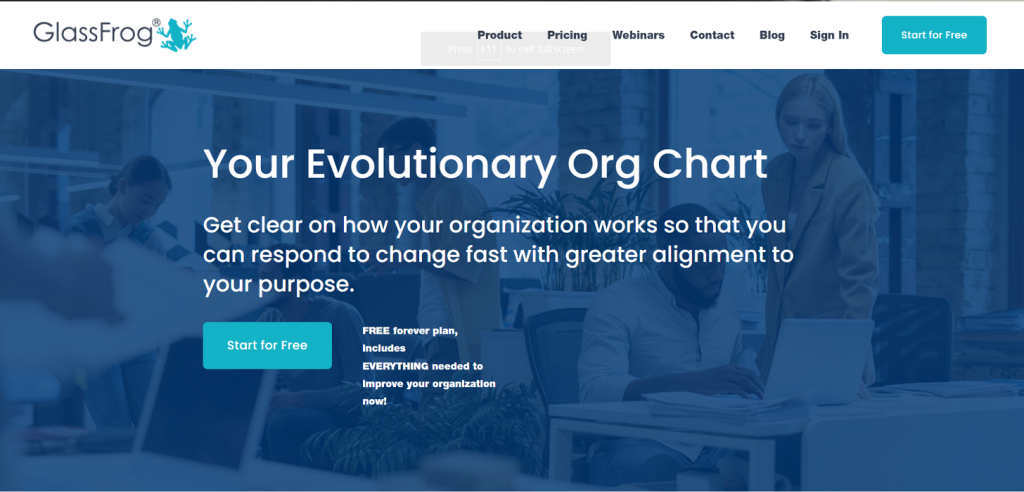
Now that we’ve explored the benefits of using AI in screenwriting let us dive deeper into how these powerful tools are changing the landscape of this ever-evolving industry.
Overview of AI-Powered Solutions
AI-powered solutions have revolutionized many industries, including healthcare, finance, and e-commerce. In recent years, film studios have also begun experimenting with various AI technologies to streamline their production processes. This trend has given rise to many new solutions that offer cutting-edge features for screenwriters at all levels.
One example of an AI-driven solution is AIScreenwriter from GlassFrog. It uses natural language processing technologies to analyze screenplays and provide real-time feedback. The software can identify plot holes, suggest new scenes, and even offer dialogue options for specific character types.
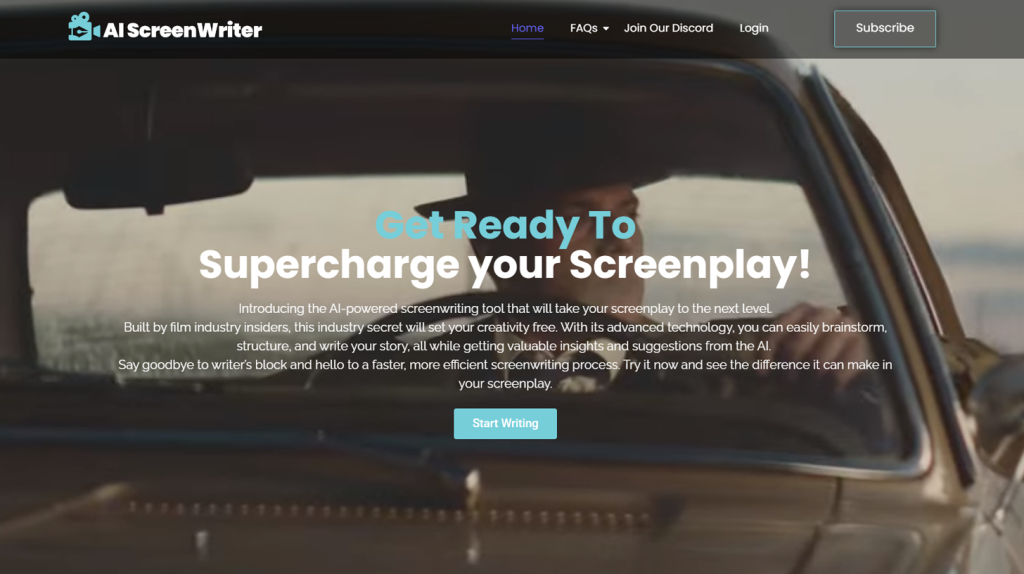
Another innovative feature of AI-powered screenwriting tools is their ability to analyze vast amounts of data, including box office performance data, audience demographics, and other metrics that help writers tailor their scripts to specific audiences more precisely. By analyzing this data, AI-driven solutions can help writers create storylines and characters that resonate better with their target audience.
However, some might argue that relying too heavily on data leads to formulaic writing that lacks the soul and authentic voice of a writer. This concern can be valid when AI tools are relied upon for the creation of content entirely. Still, when used in conjunction with a writer’s creativity and expertise, they can amplify the writer’s vision.
Think of AI as a tool or assistant similar to how an artist uses brushes to create a painting. Without the painter’s creativity or artistic talents, no amount of brushes or technology will create a masterpiece. Similarly, without the human touch of a writer’s unique skills and talents, AI-driven screenwriting cannot produce quality content.
Now that we’ve examined the potential benefits and criticisms surrounding AI-powered solutions let us delve into how they’re being integrated into existing screenwriting tools.
Integration with Conventional Screenwriting Software
One of the key advantages of AI-powered screenwriting tools is that they can seamlessly integrate with conventional screenwriting software. This means that writers who are used to working with traditional word processors or dedicated screenwriting software can easily introduce AI technology into their workflow without having to learn a whole new set of tools.
By integrating an AI-powered screenwriting tool with existing software, writers can leverage the benefits of both worlds. For example, a writer can use their preferred software to create a basic outline or draft, then switch over to an AI tool to fine-tune character development and dialogues.
This integration can help streamline the writing process and improve efficiency. It also makes it easier for writers to experiment with different ideas and techniques without having to worry about compatibility issues between different pieces of software.
For instance, AIScreenwriter is designed to work seamlessly with Final Draft, which is one of the most popular screenwriting software packages on the market today. This integration saves time as it eliminates the need to copy and paste material between different platforms or upload/download.
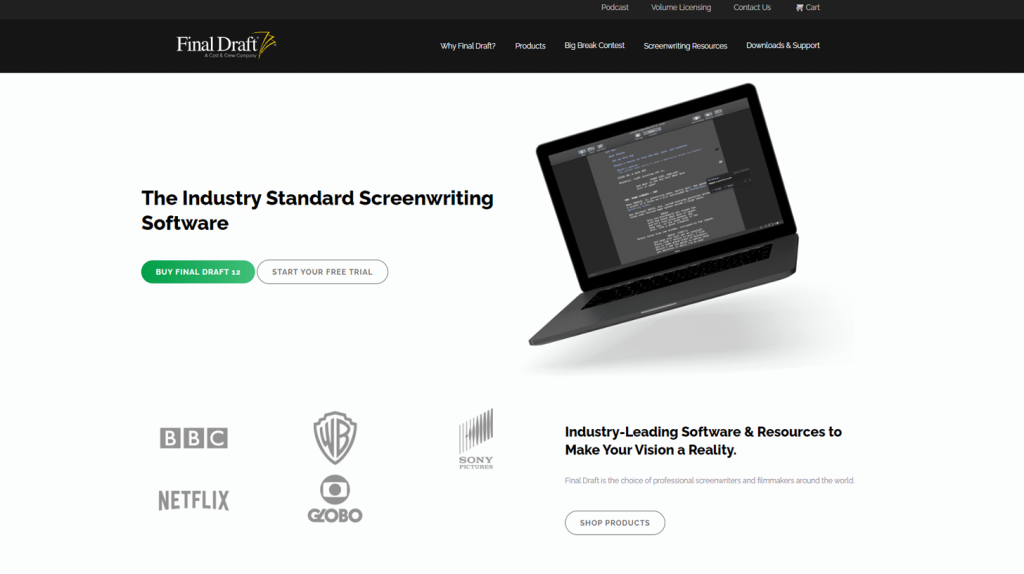
Additionally, an integrated system means that changes made in either piece of software would be immediately reflected in both applications. This means that if there are any changes in characters or dialogue in AIScreenwriter, they will be automatically updated in Final Draft as well, making it easier for writers who rely on multiple programs for their work.
However, some critics argue that integrating AI into traditional screenwriting workflows might lead to a loss of artistic control. Some writers may feel like they are losing a personal touch over their scripts by relying too heavily on technology instead of storytelling skills.
To put this argument into context, consider the world of music production. The use of digital audio workstations (DAWs) has become more prevalent in recent years, allowing producers to create entire songs using software. Yet, despite the widespread adoption of DAWs, many musicians still prefer more traditional recording methods that involve live instrumentation and human interaction. In a similar vein, while AI-powered screenwriting is helping streamline the writing process, some writers may prefer to stick with traditional screenwriting software.
With that being said, let’s take a closer look at how AI can enhance the screenwriting process itself.
- According to a McKinsey report on the creative economy, it was predicted that by 2030, AI would become integrated into creative industries, significantly impacting sectors such as screenwriting.
- A study conducted in 2019 by Adobe revealed that 74% of filmmakers, content creators, and production teams expect AI and machine learning to have a significant impact on the future of storytelling.
- Research published in 2021 found that the implementation of AI-enabled tools for script analysis could help reduce both financial risk and time spent on revisions by approximately 30%.
AI-Driven Story Development Process
The ability of AI to help generate story ideas and enhance character development has significant implications for the film industry.
One of the most interesting applications of AI in the screenwriting industry is its ability to assist writers in generating unique and compelling story ideas. This is done through machine learning algorithms and natural language processing techniques that analyze vast amounts of data about stories, plots and characters.
AI tools can help writers identify areas where their scripts may be lacking and provide suggestions on how to fix them. For example, AIScreenwriter uses deep learning algorithms that have been trained on a large number of movies, TV shows and other forms of media to suggest alternative plot twists or character arcs.
Let’s say a writer is struggling to come up with a new idea for a rom-com screenplay. They could input basic information such as genre, emotions they want to evoke, etc., into an AI tool like AIScreenwriter. The tool would comb through countless sources of movie data and provide options based on similar themes or storylines identified from past hits.
By offering intelligent and relevant suggestions based on existing successful content data in the genre, tools like AIScreenwriter can help give screenwriters fresh perspectives even if they are stuck with developing their story lines.
Another major application of AI technology in screenwriting is the generation of enhanced dialogues and character interactions. With natural language processing techniques integrated into screenwriting tools like On-Page Stealth Writer, AI-powered algorithms can help writers develop more nuanced dialogues and character interactions.
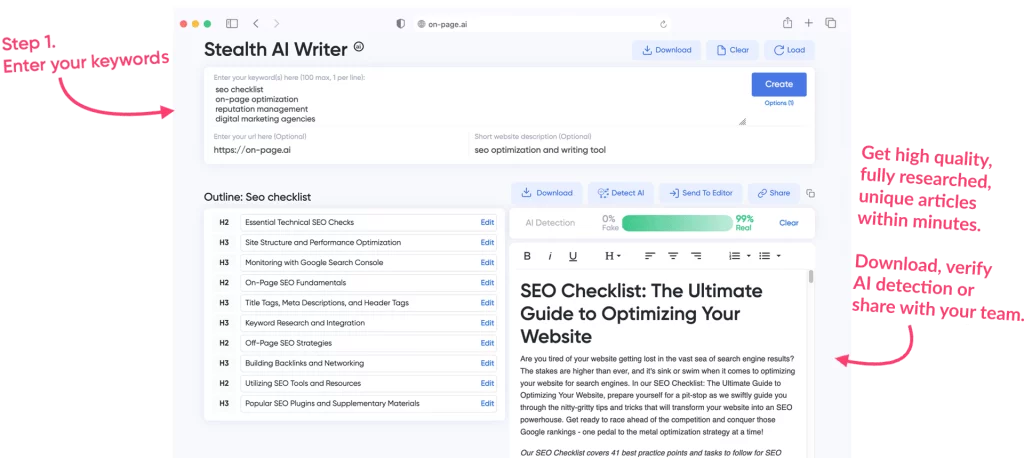
Take a tool like the Stealth ReWriter. It uses an AI algorithm that scans existing content to generate enhanced and optimized text. A writer can input their draft and let the tool suggest better or more effective options for certain lines. The alternative sentences provided are often phrased differently and may add emotional nuance to a character line that wasn’t present in the original script.
While AI-driven rewriting of content cannot replace a skilled writer’s ability to craft powerful scripts, it can provide an extra layer of refinement that brings out the best in the screenwriter’s unique voice and style.
Of course, there is the risk of overreliance on technology in the creative process. Some writers may feel like they are losing their own personal touch while relying too much on automated suggestions. However as mentioned earlier, integration with conventional screenwriting software ensures this extra layer of scripting refinement is non-invasive and flexible enough to accommodate different writing styles.
As we continue to explore AI-driven screenwriting, it is important to also address ethical considerations and industry response to these innovations.
Generating Story Ideas
One of the most challenging aspects of screenwriting is coming up with original and compelling ideas for stories that will resonate with audiences. This is where AI-powered screenwriting tools excel, providing writers with a range of innovative features to help generate fresh ideas and overcome writer’s block.
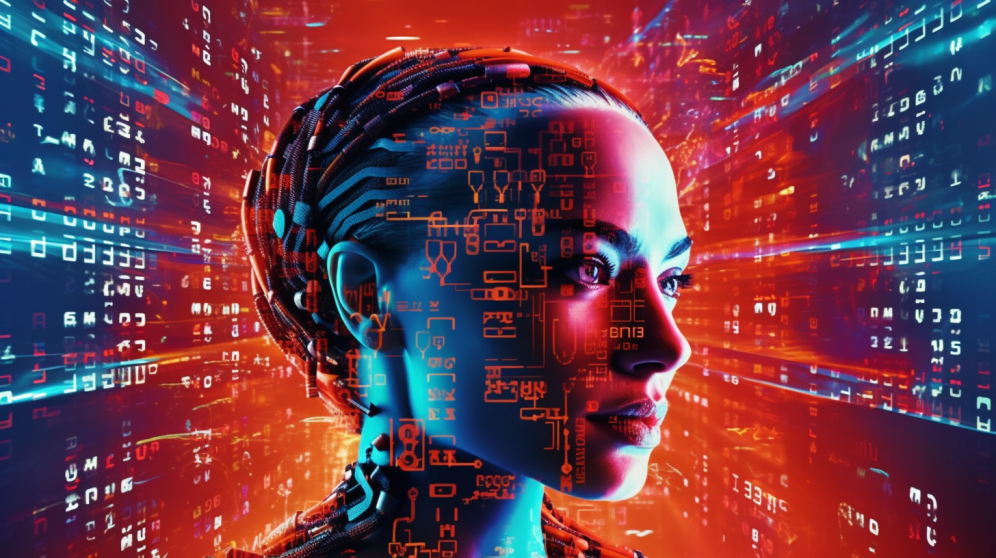
For example, some AI screenwriting tools can analyze existing movies and TV shows to identify themes, genres, and plot structures that are popular with viewers. With this information, the tool can suggest new story ideas or even generate an outline for a screenplay based on the data it has collected.
Another advantage of using AI to generate story ideas is that it can help writers think outside the box by suggesting perspectives and themes they might not have considered. One such tool called The Dialogue Box analyses novels in various genres to suggest starting dialogue prompts as writing prompts. This can help writers jumpstart their creativity and break through walls when brainstorming comes to a halt.
However, some critics argue that relying on AI for generating story ideas could lead to formulaic storytelling that lacks originality or authentic voice. It is possible for writers to become over-reliant on technology rather than pushing their creativity and imagination; therefore, it’s critical only to use these tools as prompts rather than rely solely on them.
Regardless of these concerns, the benefits of having access to cutting-edge AI-leveraged tools cannot be ignored. Let’s take a look at how AI can enhance dialogues and character interactions in your script.
- AI-powered screenwriting tools can help writers overcome writer’s block by analyzing existing movies and TV shows to suggest new story ideas and generate fresh perspectives. However, it is important for writers to not become over-reliant on technology and use these tools only as prompts to push their creativity and imagination. Despite some concerns, the benefits of using AI in screenwriting cannot be ignored, including enhancing dialogues and character interactions in scripts.
Enhancing Dialogues and Character Interactions
Writing engaging dialogues is an art form. It can be challenging to portray a character’s emotions and motivations through words alone. However, with AI-powered screenwriting tools, writers have access to advanced features that offer insights into character development and interaction.
Many AI-enhanced tools provide features like sentiment analysis, which can help writers gauge the tone and mood of the conversations in the screenplay. Some even offer a Character Builder that provides an overview of character personality traits and development arcs for improved depth and complexity of characters.
AI tools create a character interaction map by analyzing thousands of scripts to identify patterns in dialogue based on specific scenes, settings, or genres. It then generates suggestions for word choices, sentence structures, and fillers dialogues that can help make scene writing easier and less time-consuming.
Think of it as having a personal writing assistant that allows you to focus on the creative aspect of screenwriting while handling technical work fast solutions. Inspired by GPT3 technology (an AI text recognition tool), some AI-driven software also helps generate replies between different characters with compelling responses based on their unique personalities, interests, conflicts, and goals.
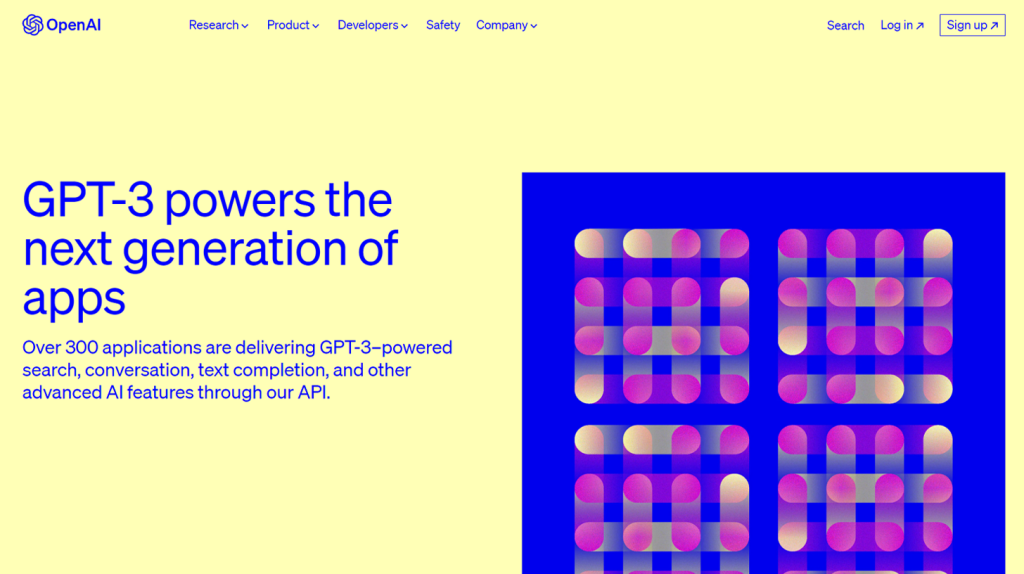
Of course, there is some concern over how much control an AI should have over the script’s direction. Some people claim this technology may lead to limiting creativity and creating formulaic scenes that rely on automatic script suggestions rather than human imagination.
These arguments are valid; however, the nuances of AI in developing creative material will come with use over time. In conclusion, we appreciate the value added to screenwriting processes by cutting-edge technologies empowered with AI advancements.
Advantages of AI in the Screenwriting Industry
AI technology in screenwriting has unimaginable possibilities. The benefits are not just limited to screenwriters, but also producers, directors and actors who use the script as a roadmap for their performance. Here are some of the most notable advantages:
- One of the most significant benefits that AI can provide is enhanced creativity. With AI-powered screenwriting tools that offer auto-generating story ideas, unexpected plot twists, and unique character interactions, screenwriters can break out of conventional patterns and come up with original and exciting stories that stand out in today’s oversaturated market.
- Another advantage of using AI tools for screenplay writing is improved efficiency. AI-assisted writing can help writers save time on tedious tasks like formatting dialogue, transitions, scene headings, or proofreading. The software automatically takes care of these tasks so that the writer can focus on their creative output.
While some argue that human emotion is crucial to storytelling and fear that AI-written scripts will lack that human touch, others believe that removing human bias from the writing process can lead to more objective and compelling narratives.
It could be said that AI offers an extra set of eyes looking at a script to improve it before it gets into the hands of humans. That is no different than how a traditional editor reviews a screenplay before passing it to the manager or director.
Ethical Considerations and Industry Response
Like any other technological innovation, AI also raises ethical concerns in the film industry. One such consideration is around whether an AI program should be considered a writer on a project or acknowledged appropriately in writing credits.
Industry experts have responded to these questions with proposals stating that AI remains a tool rather than an individual contributor. For instance, according to Writers Guild Association’s proposal ensures that works produced through technologies and software tools like AI may not be treated as literary or source material. This debate raises significant questions about ownership, intellectual property rights, and fair access to lucrative writing opportunities.
Another concern is around the potential loss of jobs in the screenwriting industry due to the introduction of AI technology. However, others believe that AI can create new job opportunities in various areas of the film industry, including creative consultants who can work with writers to pitch innovative and original content.
At present, there is no clear answer regarding the impact of AI on the film industry’s future. Therefore, it calls for a collective effort from all stakeholders to consider their options carefully and ensure that AI is integrated ethically into the film-making process.
While advancements in AI technology will continue to develop more sophisticated frameworks for enhancing screenwriting, its use should prioritize talent. Authors must remain central in creating and designing storylines considering their experiences and backgrounds
One may argue against this premise suggesting that less experienced writers get an equal opportunity to collaborate with directors on high-quality productions while using these creative tools to help them craft a great script.
It could be said that the integration of AI technology in screenwriting is similar to self-driving cars’ evolution or automated drone deliveries reshaping traditional logistics and mail delivery landscapes.
Common Questions Explained
Will the use of AI in screenwriting ultimately replace human writers?
While AI has significant potential to enhance the screenwriting process, it is unlikely that it will completely replace human writers. According to a study conducted by the McKinsey Global Institute in 2017, only 5% of jobs can be fully automated using current technology. Writing requires a high level of creativity and emotional intelligence, which AI still struggles to replicate.
Moreover, AI-generated scripts have received mixed reviews. In 2016, an AI-written short film called “Sunspring” premiered at the Sci-Fi Film Festival. While it was intriguing and entertaining in its absurdity, it lacked depth and coherence – elements that are crucial in any successful screenplay.
That being said, AI can assist in various parts of the screenwriting process such as generating ideas and providing data analysis for market trends. Microsoft’s AI‐based writer’s assistant software uses machine learning to suggest rewrites and check spelling errors for scriptwriters.
In conclusion, while AI has the potential to improve certain aspects of screenwriting, human writers bring unique perspectives and creativity that cannot be replicated by machines.
Can AI write a screenplay that is on par with a human-written one?
Yes, AI has already proven that it can write a screenplay that is on par with those written by human screenwriters. In fact, studies have shown that audiences cannot distinguish between screenplays written by humans and those generated by AI.
Moreover, AI can generate storylines at an exponentially faster rate than humans. This speed allows filmmakers to explore multiple storylines quickly and cheaply.
However, it’s worth noting that while AI may be efficient at generating plot points and dialogue based on pre-set prompts or templates fed to it, it lacks the creativity and empathy seen in the best human screenwriting. Thus, for works requiring unique emotional resonance or ideas that apply to the current cultural zeitgeist, having a human writer involved may still be important.
In conclusion, while AI-generated screenplays may not replace human screenwriters entirely, they offer a valuable tool for filmmakers to experiment with new concepts and storytelling techniques.
What ethical concerns arise when using AI in the screenwriting process?
While AI has brought a much-needed revolution in the field of screenwriting and filmmaking, it also raises some ethical concerns. One of the major concerns is the creation of biased content by AI algorithms.
AI algorithms are trained on data, and if the data used for training is biased, then the algorithm will also be biased. This may lead to stereotyping of certain characters or groups in films, perpetuating harmful stereotypes and discriminations.
Moreover, there is also a risk that AI-generated scripts may lack originality and creativity. As AI technology primarily relies on existing data patterns to generate new ideas, there is a risk that stories generated by machines will lack the depth and complexity of human-generated content.
These issues highlight the importance of ensuring responsible use of AI in screenwriting. The industry needs to ensure that the AI training data used is diverse and inclusive, and monitor algorithms for potential bias regularly.
Additionally, it’s crucial to maintain human control over AI-generated content. Even with sophisticated AI technology, humans must remain involved in decision-making processes and finalizing the storylines.
In conclusion, while AI can enhance the screenwriting process’s efficiency and bring innovation to storytelling, filmmakers must carefully manage its usage to prevent potential ethical implications.
How does AI impact the creative process in screenwriting?
AI is having a transformative impact on the creative process in screenwriting. With advancements in natural language processing and machine learning, AI algorithms are now able to analyze vast amounts of data related to successful films and TV shows to generate new narrative concepts and storylines.
One example of AI-powered screenwriting software is Scriptbook, which uses machine learning algorithms to evaluate scripts based on language, tone, themes, and characters. Through this analysis, it predicts the potential box office revenue for a film with an accuracy rate of 84%.
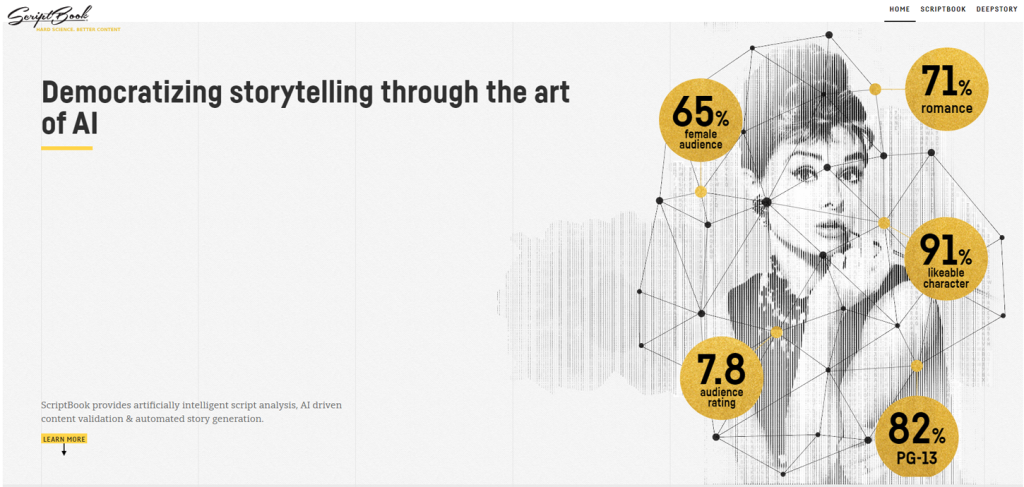
Moreover, AI can also help with tasks like identifying plot holes or repetitive dialogue in a script, thus allowing writers to fine-tune their work more quickly and efficiently. IBM’s Watson platform, for example, has been used by studios like 20th Century Fox to identify patterns and themes across movies in order to inform decision-making about new projects.
However, the integration of AI into the creative process raises important questions about the role of human creativity versus algorithmic innovation. While AI may be able to generate ideas and analyze data more efficiently than humans, it still lacks the emotional depth and intuition that humans bring to storytelling. Ultimately, it will be up to writers and filmmakers to strike a balance between using AI as a tool for creativity rather than a replacement for it.
In summary, AI’s impact on the creative process in screenwriting is significant, but still evolving. As with any new technology, it has the potential to transform the industry in profound ways while also raising important ethical considerations. Check out On-Page and register an account to help you start with the great tools for producing screenwriting ideas.
What are some examples of successful collaborations between AI and screenwriters?
As AI technology continues to burgeon, it’s becoming increasingly popular to see how the Hollywood industry has utilized it in collaborations with screenwriters. One such successful collaboration is that between Benjamin (a natural language processing software) and Tony Chen (a professional screenwriter). Benjamin co-wrote the script for a suspense thriller titled Sunspring, which was then used in a 48-hour competition at the Sci-Fi London Film Festival. The result was a highly acclaimed film praised for its novel plot twists and gripping storyline.
Another notable example is that of the Netflix series “Love, Death & Robots”. Different episodes were written by different teams but all with the support of AI technology such as voice recognition data analysis and machine learning algorithms. This allowed them to create unique storylines while still adhering to certain limited time constraints.
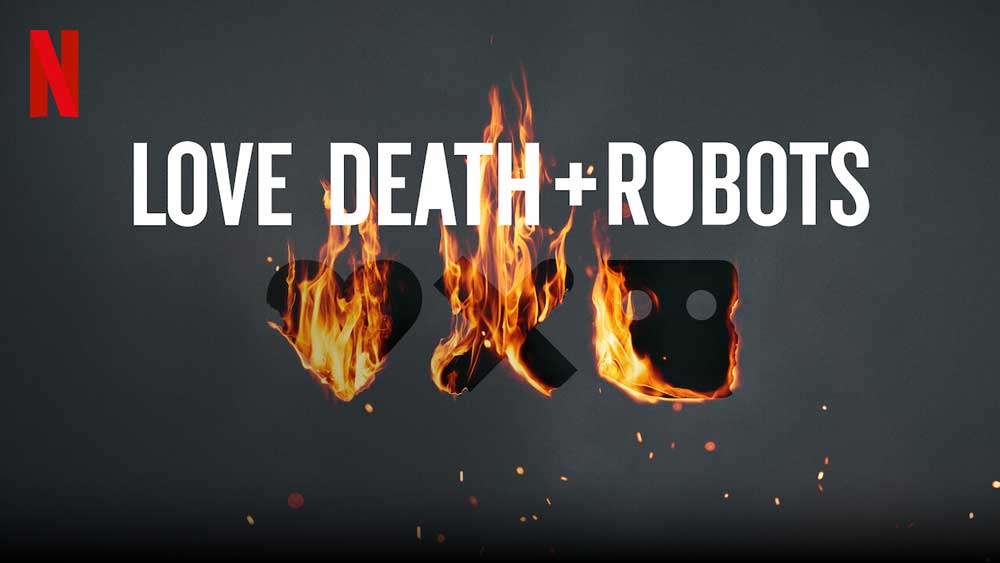
Statistics show that as much as 80% of audience usually prefer movies or shows which have some form of personalization for their viewing experience. AI and algorithms can analyse the users watching habits among other data basis which can help companies create content preferred by most genres thus creating a larger user-based.
AI programs enhance screenwriting through their massive data compilation prowess; they can easily analyze hundreds of scripts at once using NLP software, identify common tropes and traits, and help writers create characters who fit within certain molds while still maintaining individuality. They also assist in identifying taboo topics avoided by people’s interest areas but fulfilling their favourites genre on the required aspects.
In conclusion, numerous collaborations between AI and screenwriters have been successful – most focusing on using artificial intelligence to generate concept ideas and streamlining creative workflows. As AI continues to evolve, it will play an even greater role in foregrounding creativity within Hollywood storytelling. Time will tell what future collaborations hold in store, but one thing is certain: AI remains a trailblazer in making screenwriting easier and more efficient while retaining audience attention.

